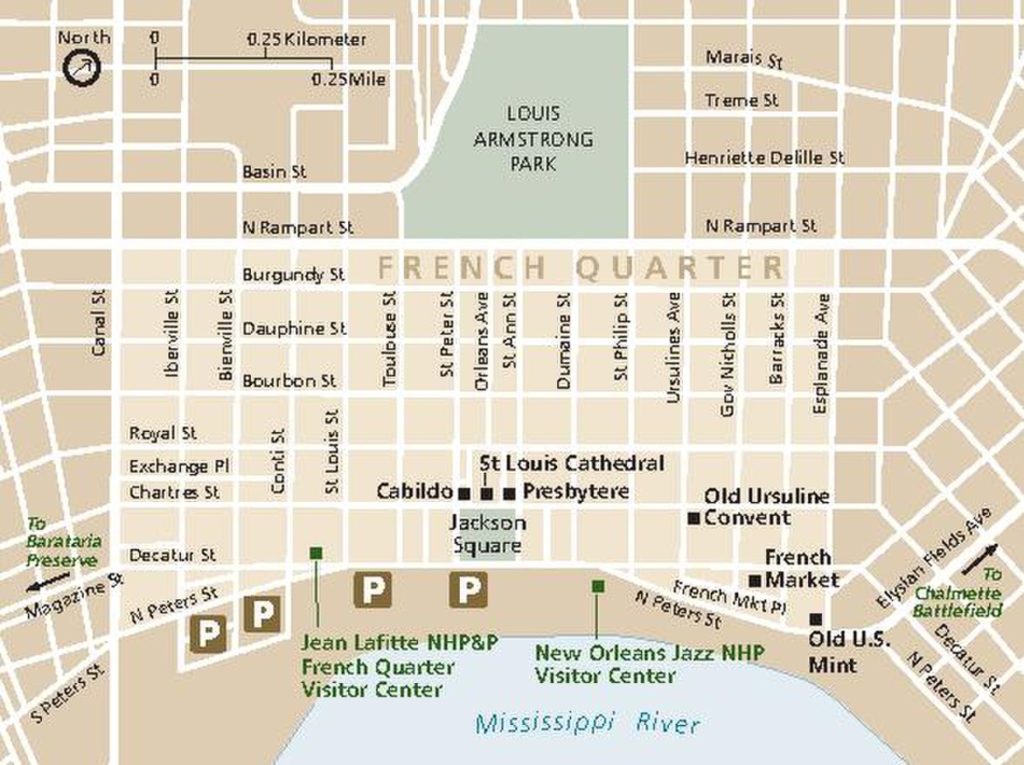Say What? New Orleans street names are hard to pronounce! Yes, indeed.
There are a lot of interesting things about New Orleans. The fact that the languages, food, music, and traditions of the Louisiana Creole culture continued after the Louisiana Purchase and US statehood is unarguably unique. In my post Say What? New Orleans Speak I introduced readers to some local lingo, popular places with a bit of history, and a pronunciation guide. Today we will look at some street names. Yeah-you-right, if you want to sound like local when visiting NOLA, there are a few street names that are particularly difficult to pronounce. Tourists come across all or most of them during a visit.

Let’s start with a review. You already know locals pronounce the name of the city as noo OR-lunz, noo OR-lee-unz, or noo AW-linz. But did you know the city is divided into Parishes and Faubourgs? A Parish is called a county in other US cities. A Faubourg (FAUX-berg) is a holdover from the French Colonial period and refers to the parts outside the city, known today as the “burbs”. The French Quarter which is the oldest neighborhood in the city today, was the original city, so the territory built up outside of that space was considered a “faubourg” or “suburbs’’. For example, there’s a Faubourg St. John, a Faubourg Marigny (MAHR-ruh-nee) and the Faubourg Tremé (tray-MAY) made popular in the HBO series Treme. However, in the TV show, the spelling Treme could be pronounced TREAM. When spelled the French way with the diacritic over the second ‘e’, Tréme, the pronunciation changes.
Here’s the thing: the blending of a handful of old world cultures that settled in Louisiana created a new culture that has over time influenced the pronunciations of old words. So a French word or a Spanish word or a word from one of the original languages from colonial or native Louisiana languages may not be pronounced as you think.
Have some fun and give these pronunciations a try. And if you get stuck, that’s okay, just ask a local, they won’t mind!
- Baronne: (buh-ROAN) not (bar-ro-NAY)
- Burgundy Street: (bur-GUN-dee) not like the wine, (BURG-gun-dee)
- Carondelet: (kah-ron-duh-LET) not (kah-ron-duh-LAY)
- Chartres: (CHART-ers) not (char-TRESS)
- Conti: (KAWN-tie) not (KAWN-tee)
- Decatur: (duh-KAY-ter), not (dee-ca-TURE) or (deck uh-TURE)
- Freret: (FER-et) not (FRER-ay), the French way
- Iberville: (EYE-ber-ville) not (IB-er-ville)
- Tonti: (TAWN-tee) not (TAWN-tie) ignore #5!
- Tchoupitoulas: (Chop-a-TOO-luhs) not, well…you can imagine
- Toulouse: (TOO-loose) not (Too-LOOSE)
- Tulane: (TOO-lane) not (tu-LANE)
After you have it all figured out, plug in New Orleans street names to a car navigation system on your visit if you want to get a good laugh.
And please, strike up a conversation with a local while out and about. When home, the local lingo is what makes it feel like home to me. A typical greeting from an old childhood NAY-bah I may see in da MAW-nin’ could go like this, “Hey dawlin’! Where y’at? How’s yamama’n’em? You bettah come pass by ma house before you leave.”
And that is music to my ears.